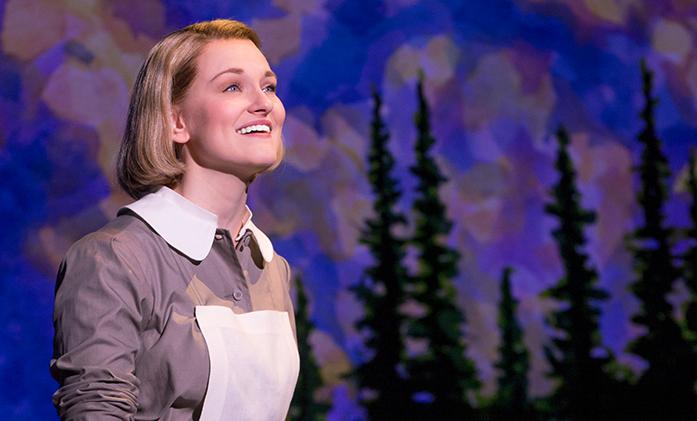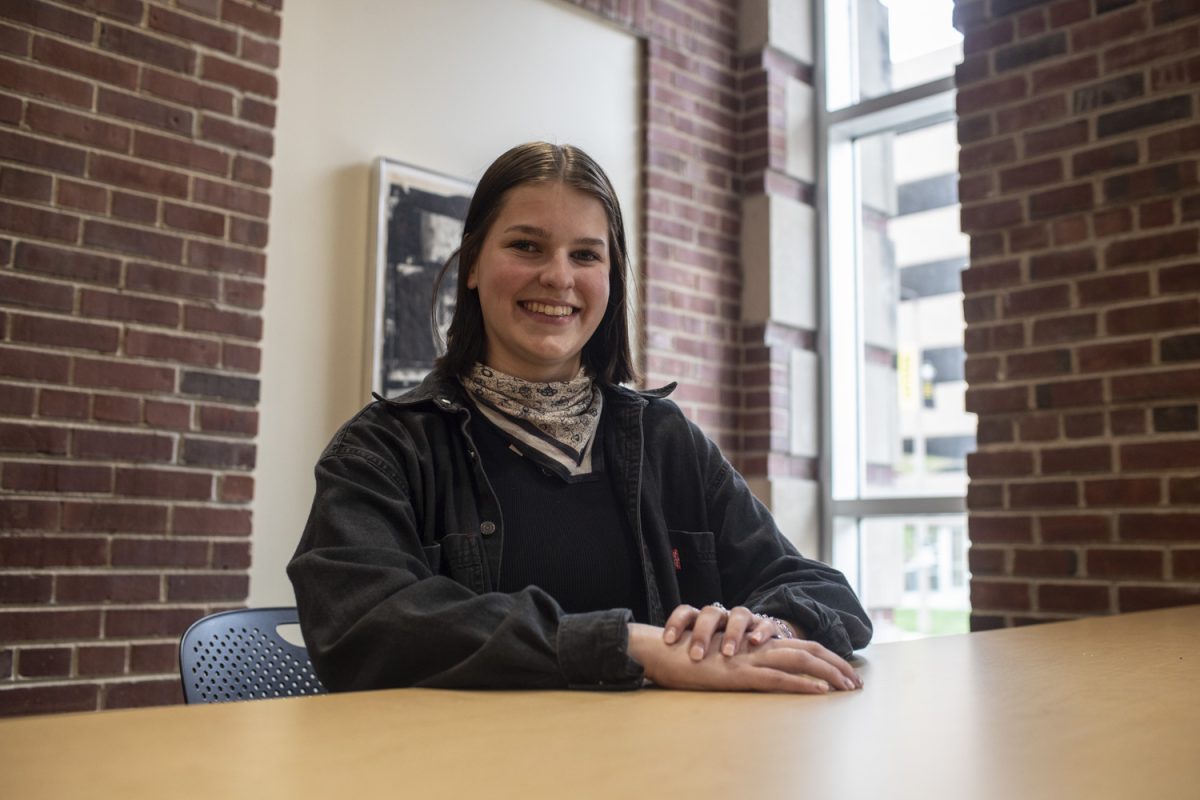By Claire dietz
If the hills in Austria are alive with the sound of music, are the cornfields in Iowa the next best thing? Perhaps we will find out.
This week through Feb. 5, Hancher will host performances from the national tour of The Sound of Music. The classic musical tells the story of the nun Maria, who becomes a governess of the von Trapp family as they struggle to create their place in Nazi-occupied Austria before World War II.
But this premise is just the beginning as Maria eventually falls in love with the children and ultimately the man who hired her, Capt. Georg von Trapp. When ordered to work with the Nazis, whom he opposes, they flee Austria with the rest of the family.
The musical is based on the real-life events of Maria von Trapp as described in her memoirs, as well as the book The Story of the Trapp Family Singers, which outlines the life of the family as they fled from Europe as refugees and made a life for themselves in America.
Germany annexed Austria in 1938, and, as a result, it participated in World War II on its side. Elizabeth Heineman, a University of Iowa history professor, said some Austrians, such as the von Trapps, were troubled by the annexation, while much of the Austrian population was enthusiastic about becoming part of the “dynamic German state.”
Heineman said some of those tensions of World War II are encapsulated in the musical.
“For some populations, the tensions felt even more intense than what we see in The Sound of Music,” she said. “The city of Vienna, for example, was a flashpoint, with coups against the government and frequent violence on the streets. Members of socialist or communist parties and Jews had reason to feel especially threatened. Compared with those groups, the von Trapps were relatively secure. But even so, we get a sense of how frightening those times could be.”
While the war was important in shaping much of modern life and geopolitics, Americans, Heineman said, feel very differently about World War II Europeans. Even in our modern political era, the repercussions of World War II can be felt and seen across Europe and Asia.
“The wartime strain on countries such as Great Britain and France sped up decolonization, leading to new states that now form part of the world community,” she said. “The Cold War division of Europe and Asia was one outcome of World War II, and Putin is still concerned with regaining the stature and influence Russia had when it was one of the rival superpowers.”
This is where the musical enters the picture.
The Sound of Music was written by Richard Rodgers and Oscar Hammerstein II — two iconic names in musical-theater history. The two were alive during World War II and able to bring some of the tension and fear experienced by the masses to the musical theater stage.
The two composers’ influence can be felt to this day, according to UI theater lecturer Megan Gogerty. While the trend in musical theater has moved toward more sung-through musicals, she said, “the emphasis on narrative and character development remains.”
“[The] Sound of Music was the last Rodgers & Hammerstein musical, so it capped off a stunning run of musicals in the 1940s and ’50s that changed the art form forever,” she said. “Musicals were taken seriously as meaningful works of art rather than dizzy entertainments.”
Now, as the country’s political climate is rapidly changing, the musical forces the audience to ask questions about morality and how hard it is to do what’s right. The belief may be echoed by many as political dissent has become more prominent over the past few months.
Art such as the Rodgers and Hammerstein musicals are not born in a vacuum; rather, they are direct products of the time and era in which they were created. Works such as The Sound of Music, for example, became the fear-ridden landscape dappled by the shadows of World War II. Now, as the political clock moves forward along with the rest of the world, the question stands of what art will be created with it.
“On the one hand, artists often respond to contemporary social and political issues in ways that are truly profound,” Heineman said. “On the other hand, art suffers when artists fear repercussions for political expression. And artists, like everyone else, need to make a living. When public support for the arts declines, then it becomes much more difficult for artists to devote time and energy to the work that enriches us all.”
One person bringing a contemporary approach to political expression through art is the show’s director, Jack O’Brien, who previously garnered acclaim through directing Hairspray and The Piano Lesson. As the director behind the latest iteration of the national tour, he hopes to tackle the themes the musical presents and expose them as something still relatable to the modern era.
Paige Silvester, who plays Lisel, said the production did not want to take a gentle approach with the themes.
“What we haven’t shied away from is the extremes, and the urgency, and the moments of intensity and the low lows,” she said. “They allow for a more complete experience at the theater, because they make you appreciate the elation.”
“It really has tried to create a lot of level in the production so you experience a full-emotional journey. [O’Brien has] been able to maintain the nostalgia everyone has come to know and love but hasn’t shied away from the moments of fear and uncertainty, which allows for a more complete journey.”
She describes the musical as cross-generational, something that is able to appeal to all ages and stages of life.
“It speaks to all of us in different ways,” Silverster said. “It strikes me differently on different days of the week.”
The musical also allows moments for reflection and contemplation, she said.
“It has something that will represent you emotionally, whether it be positive or self-reflective,” Silvester said. “It hasn’t gotten old. You take something different away from it every day.”
As the American political climate has dramatically shifted over the past year and a half that the production has been on tour, she said, the cast had no choice but to address the inevitable elections and political shakeups.
“It was on the horizon,” she said. “It seemed like a distinct possibility we acknowledged but had no idea if it would be reality. It’s just so interesting to have watched the whole thing come to fruition, and this keeps revealing itself to be more and more relevant to this day when we began the process.
“It felt like a possibility and a blip in the way it has transformed and become a very different thing with things we deal with as a society and as a country. We came into it with the notion of it being a completely relevant work with relevant messages, but to watch it to come to that extent over the past year and a half has been fascinating.”







